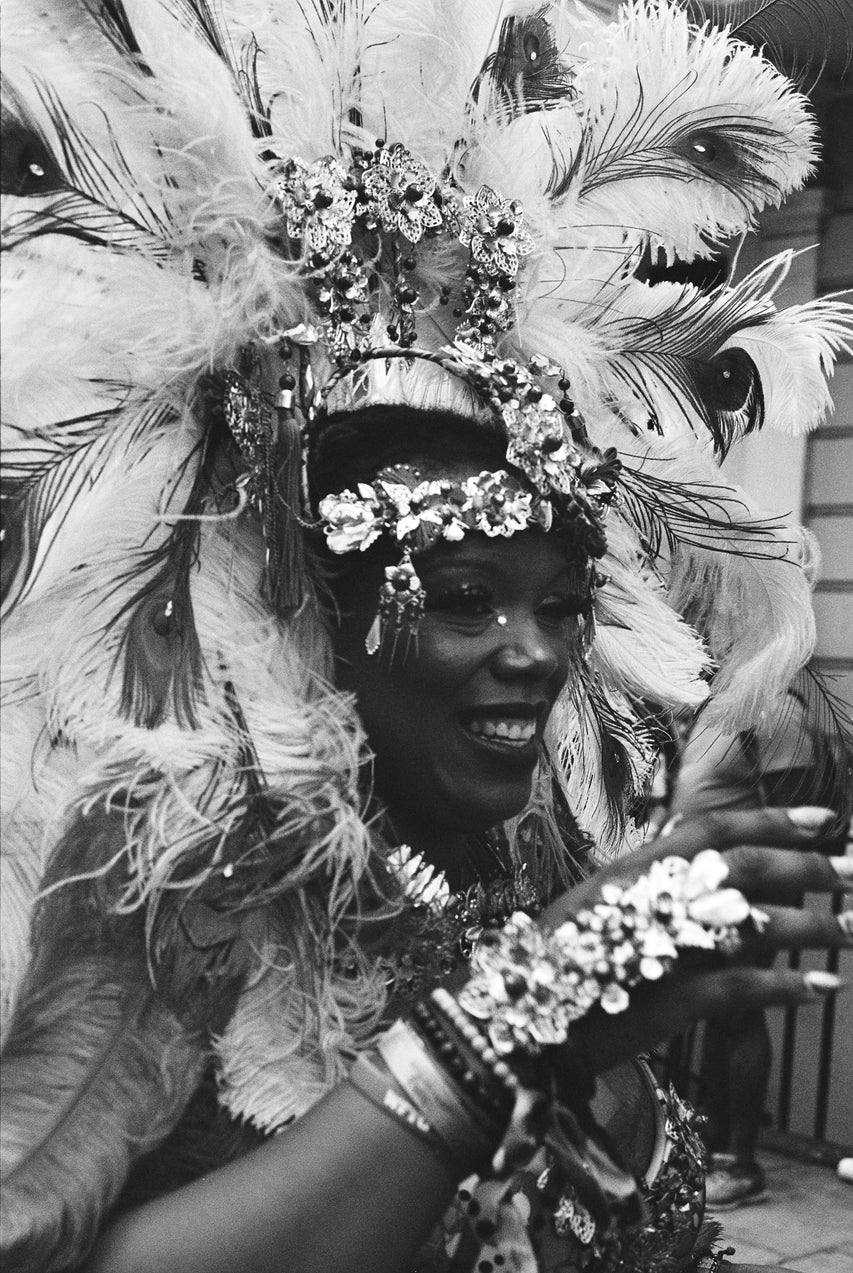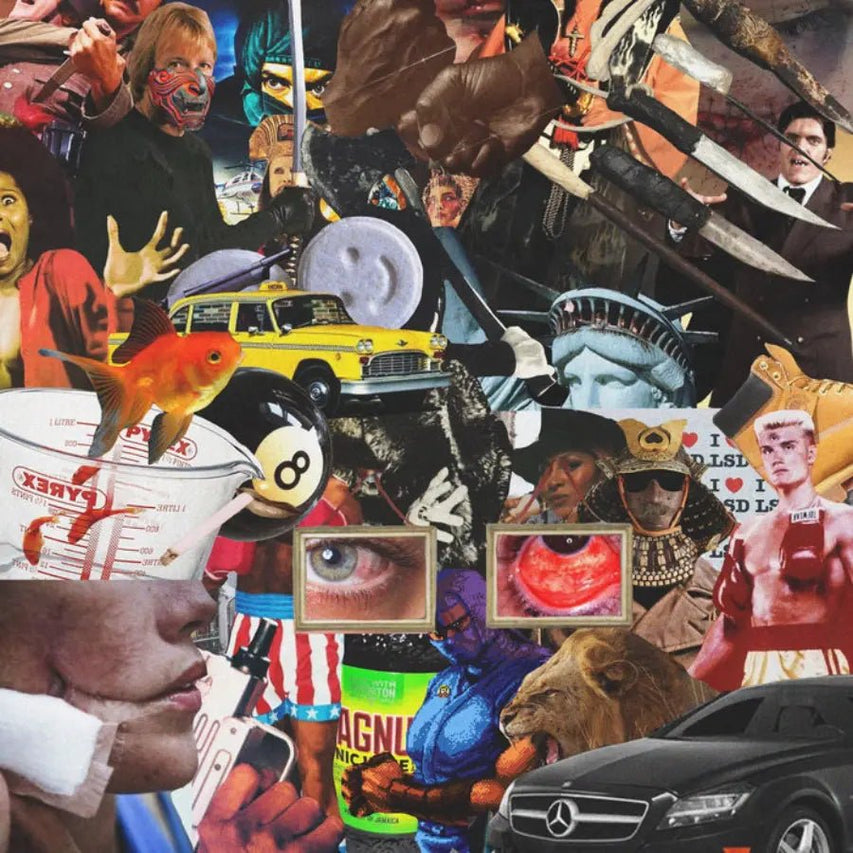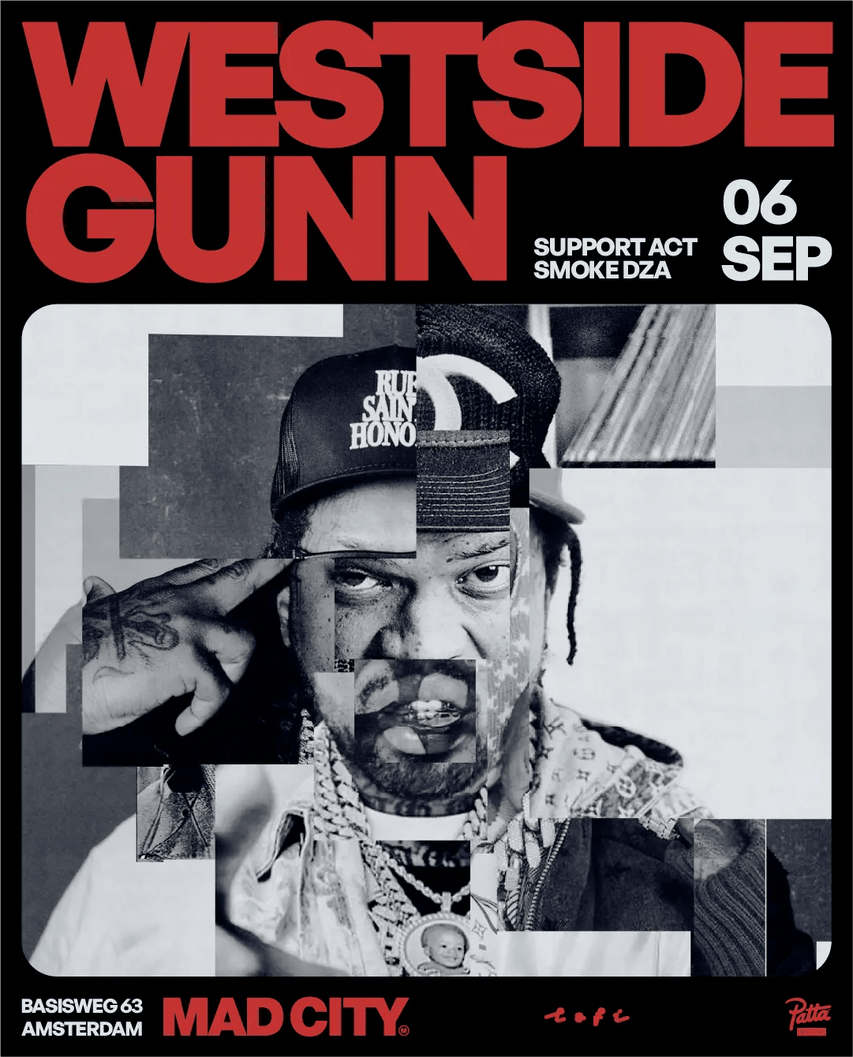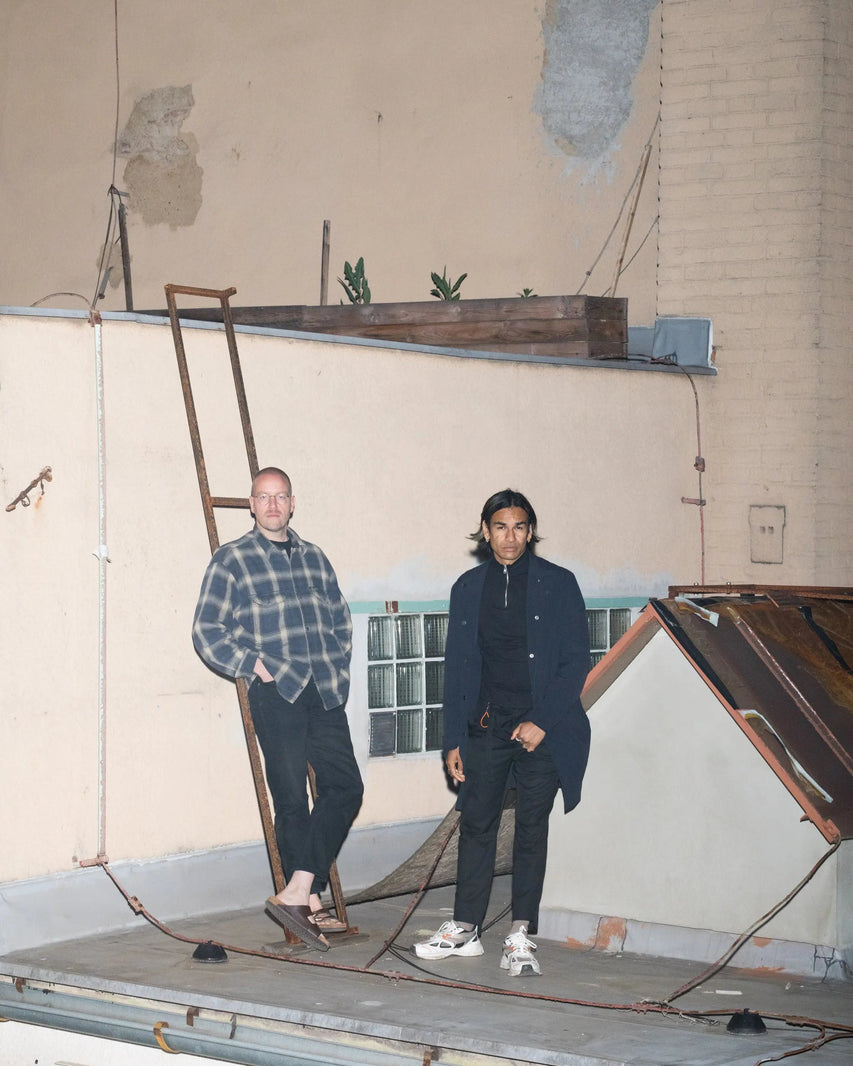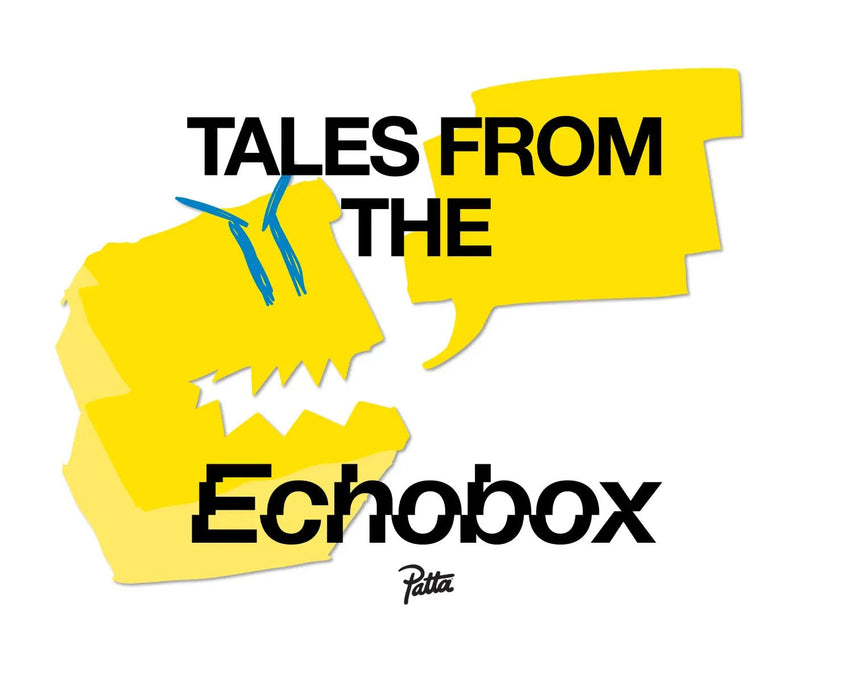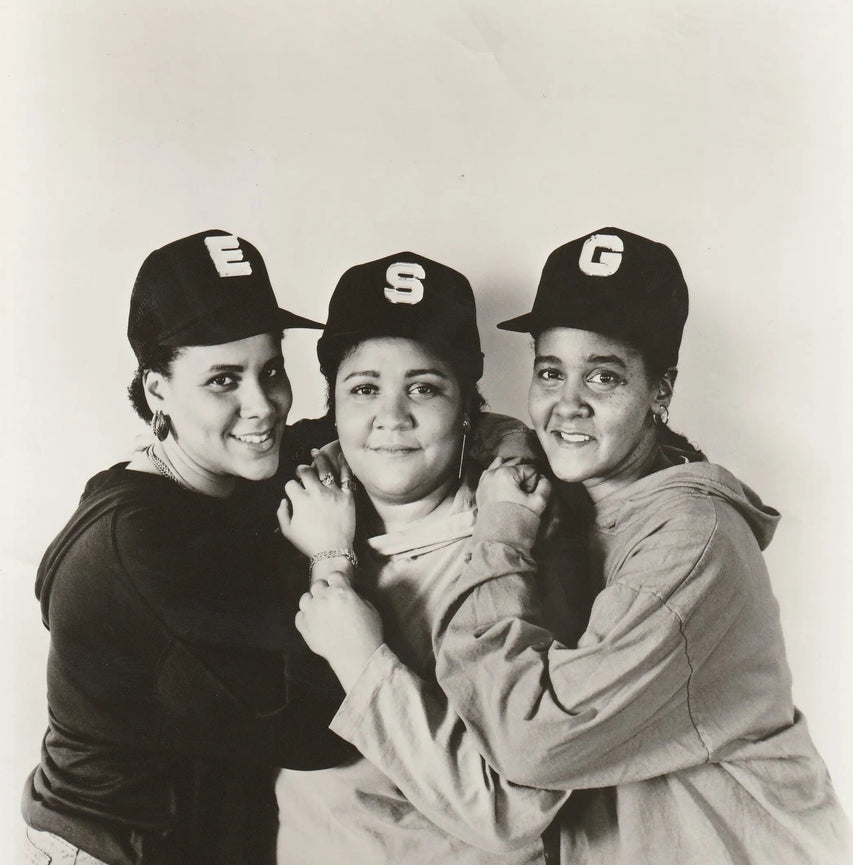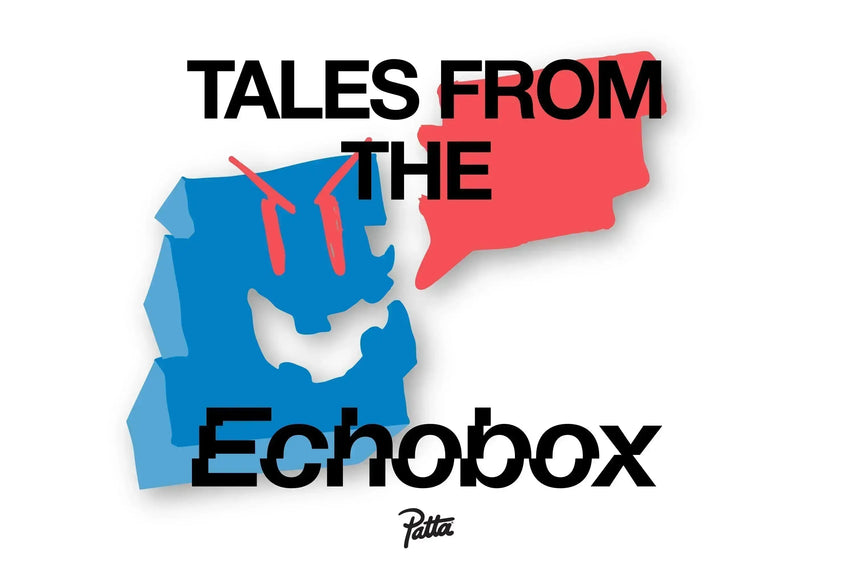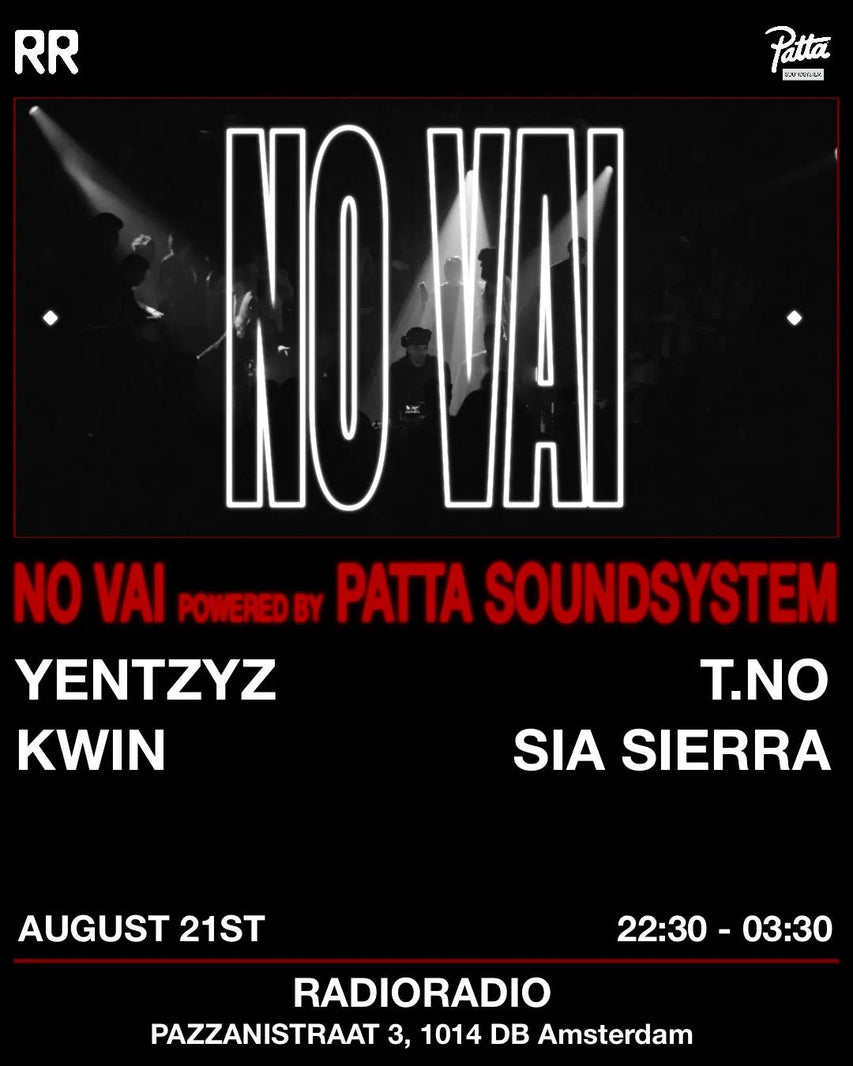
Get Familiar: Karmel Sabri
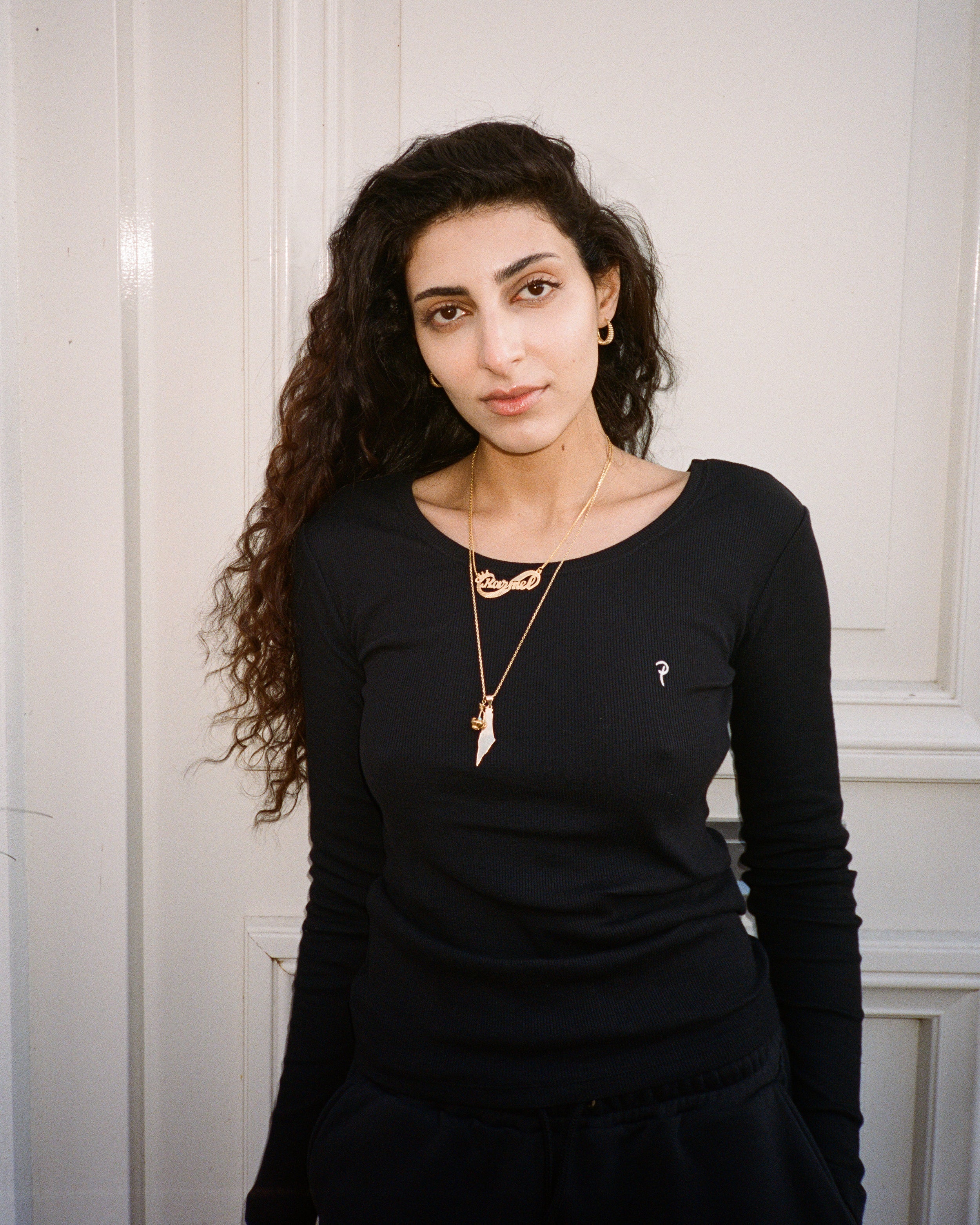
One of the protagonists from the Patta Femme collection for 2023 is Karmel Sabri. A multi-disciplinary artist and designer who is now based in Amsterdam. We first crossed paths very early in her adventures in Europe, and as we grew apart, we ended up becoming united through fashion. She has recently released her first collection for her brand, Baba Boys, and performed her graduation piece for the Sandberg Institute. Over the summer break, we caught up with Karmel Sabri so we could get familiar with her mission now.
IDA Radio · Ghost Sovnds – Karmel Sabri 03.03.22Can you tell us about yourself and what you do in life?
I was born in Minneapolis and raised by my extensive Palestinian family. Being Palestinian inherently led me to become involved in Politics, but I've also had a long-standing interest in events, particularly the details that create the vibe of an occasion. I wanted to take these spaces to the next level in terms of detail, which led me to pursue a career in art. Eventually, I adopted the description "socially engaged artist" to best represent the work I do.
In recent years, I have also delved into fashion and started my own high-end streetwear label in Amsterdam called Baba Boys. It has been a joyful and fulfilling experience, bringing my background in art and events to the brand in exciting ways that help cultivate a strong community around it.
what is left by Karmel Sabri, 2017
You moved to Amsterdam in 2020 to pursue a master's called Disarming Design at The Sandberg Instituute. What led you to choose this program, and how has your experience in Amsterdam been so far?
My experience as a Palestinian who is unable to visit Palestine physically has led me to see and seek Palestine everywhere. During this journey, I came across the Disarming Design program, which originated between Palestine and Amsterdam. I chose this program because of its ties to Palestine and my desire for a change of environment.
Having lived in three major cities in the US, I can confidently say that Amsterdam has been the easiest city to establish a great circle of friends and find my way within creative circles. It's interesting how things have come full circle, as I'm now doing this interview with you, one of the very first friends I made in the city.
Regarding my educational experience here, it has been radically different from my time in the US. The Sandberg Instituute's DIY and challenging approach pushed me out of my comfort zone, making it a valuable and transformative experience. Amsterdam, in comparison to big cities in the US, feels more comfortable but less convenient.

Your work often revolves around community healing of collective colonial traumas. Can you discuss how you incorporate this theme into your installations and public interventions?
I'm deeply interested in the social and psychological aspects of collective trauma. My practice revolves around the question of how situations of oppression can give rise to cultures of abundant generosity and celebration.
Although I focus on joy and celebration, I can't ignore the other side of the coin, which, in the case of Palestine, is the darkness and pain stemming from decades of injustice. My aim is to balance between these two aspects to understand how darkness affects the light and vice versa.
I combine installations with events to create environments that become catalysts for healing, celebration, and relationships. Celebration, as a method of resistance, forms the essence of my practice. I showcased this theme in my graduation project "Inhale in hell there’s heaven," a performance featuring a 4-channel sound collage narrating the story of celebration from Palestine through music and sounds. At the center was a silk tent lifted by a bouquet of balloons and held down by the participants of the celebration.
inhale, in hell there is heaven by Karmel Sabri, 2022
Why is celebration important to your practice, and how do you see it as a method of resistance?
The concept of celebration is central to my work because it has allowed me to find my people in every city I've lived in while also creating space for those who aren't typically represented in mainstream discourse.
As someone with a history of diaspora, I once believed that participating in liberation required solely representing suffering in my work. However, through unpacking the idea of celebration, I realized that enjoying life and engaging in activities like throwing parties or indulging in beautiful things can also be a form of emancipatory practice.
The powers of celebration as a force of resistance manifest in physical, social, and emotional spaces. On a physical level, the choreography of celebration creates spaces for subversive power infrastructures, putting those involved at the center. Celebrations resist the aims of oppression by amplifying ideas and sounds through space, insisting on being seen and heard.
Socially, celebrations can be disruptive, obnoxious, beautiful, and overwhelming. They create a sense of distraction and annoyance for the enemy, making them productive in their zealous nature.
Emotionally, celebrations possess energizing and healing powers that project outward through the multitude of bodies mobilized in space. This liberating power endures beyond a specific moment or event, creating a sustained sense of collective illumination
You recently launched your clothing brand Baba Boys. Can you tell us about the inspiration behind the label and the meaning behind the name Baba Boys?
Baba Boys is my current passion project, and I'm excited to share its story. The name "Baba" translates to "father" in Arabic, and my inspiration for the brand comes from my own father, who is a significant influence in my life. He possesses a larger-than-life personality and a sense of confidence that I've always admired. When I decided to start a streetwear brand, I was aware of the male-dominated nature of the industry and the significance of being a woman within this context. So, I fully leaned into masculinity and appropriated it to my advantage. Many people assume the brand is run by a man, which I find both amusing and empowering.
Baba Boys draws inspiration from politics in The Levant but takes a light and sometimes comedic approach to contentious topics, with a strong focus on design. Fashion has always held a special place in my heart, and my background in textile studies during my bachelor's further fueled my passion for creating unique, customized garments. It took a year and a half to create the first products, but I take pride in the attention to detail, especially in designing the t-shirts and hoodies. It brings me immense joy to hear people say they practically live in their Baba Boys hoodie. Clothing serves as a powerful first impression, and wearing thought-provoking messages on a shirt can be a meaningful form of expression.
A special relationship by Karmel Sabri, 2018
How does your clothing line use visual language to express social and political discourse? Have you faced any challenges in using fashion as a means for social and political discourse?
Baba Boys employs visual language to express social and political discourse through its designs. Some designs simply say "نانا" (Baba) on the chest, signifying the wearer as a dad. It's humorous and weird, yet widely understood by those who want to embody the confidence of "baba." The most explicit design, "The Jerusalem Gift Shop," features the dome of the rock with the words "Jerusalem Palestine The Holy Land." This design, especially the use of "Palestine" in connection to Jerusalem, can evoke controversy or solidarity depending on the audience. It playfully imitates American gift shop aesthetics, which adds another layer of significance to the message. The entire process of creating a 6-layer screen print for this design was an emotional journey for me, and I was overwhelmed with joy when I saw the final product.
Most people respond positively to the designs and engage in discussions about the messages. Some friends have mentioned facing difficult conversations around Palestine. Nevertheless, for me, it's a win-win situation, as Baba Boys does truly serve as a catalyst to spark meaningful discourse and conversations beyond my immediate reach.
